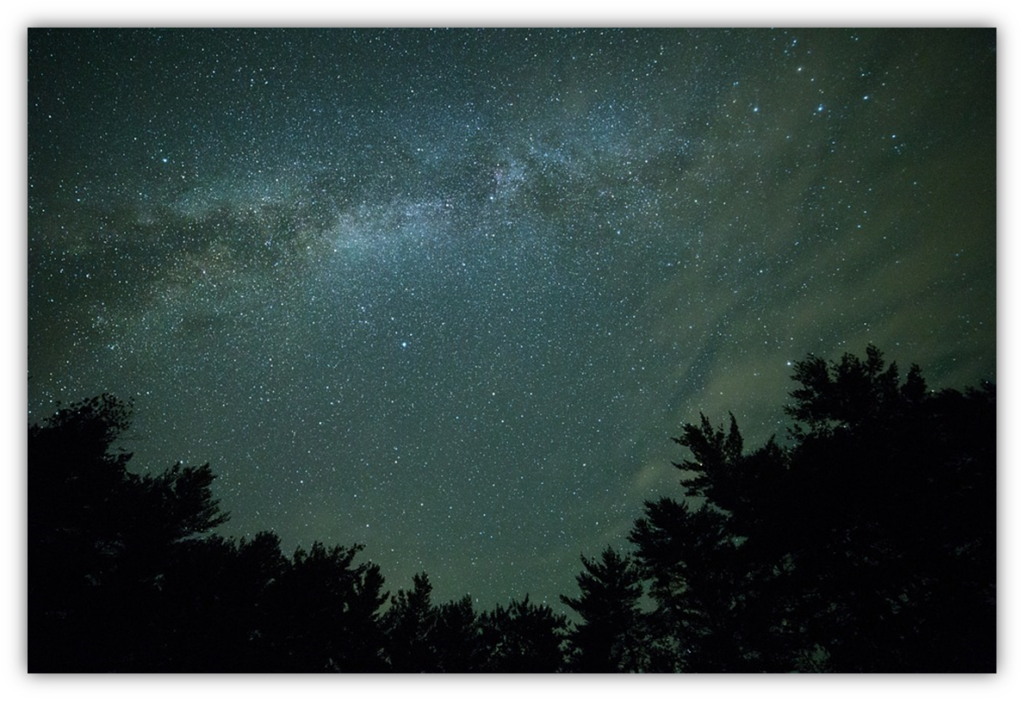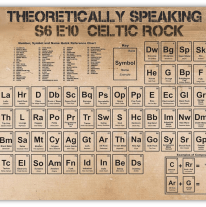Lately I’ve been thinking more about… astrology.
I’ll admit, there’s a silly kick I get from being a twin who happened to be born into the Gemini sign.
But beyond that, I never understood the attraction to astrology.
As a kid I would read daily horoscopes in the newspaper, and they seemed pretty obviously phony to me even then. Like the fortunes in a fortune cookie: randomly distributed, and depending on gullible readers who’ll believe them. No matter what happens to be written.
By the time my career path entered the realm of scientific research, superstitious practices like astrology were barely a thought to me.
…Yet now, it’s that “barely a thought” dismissal of something regarded as worthless that has recently been bugging me. It now seems so callous and smug.
But also unwise. Maybe even dangerous in a way.
People who scoff at astrology don’t simply declare that it can’t accurately predict the future. We usually take it further, into a narrative about Human Progress:
“We’ve moved on from these primitive superstitions,” we scientists say. “Let’s work to advance humanity rather than dwell on the ignorance of the past.” Basically, astrology is a relic of the Dark Ages, and we humans should put our focus on building upon the wealth of knowledge that we have cultivated since the Enlightenment.
It is undeniable that we humans have learned so much about how to explain, predict, and control the world around us. Advances in technology and medicine in recent centuries have immensely improved quality of life in so many ways. And all that is thanks to our constantly expanding body of knowledge, which is itself based on the careful testing of evidence.
That’s the “elevator chat” version of the Human Progress narrative that got me into science in the first place. It’s hard to argue with it, especially because the results of the progress are so easy to observe.
But, more and more, I think we are sometimes susceptible to being blinded by the light of human progress.
For most of my life, I’ve lived in a city. And when you live in or near a city, you rarely ever stop to notice the stars in the sky at night. You usually can only see a few at a time anyway, and they tend to be fairly dim.
But a few times in my life I have seen the night sky far away from the lights of modern civilization, as most humans throughout history probably would have seen it.
And in those times the stars were absolutely majestic. Wondrous to behold. Literally awe inspiring. Almost magical. And that impression was simply the result of being away from artificial lights for one night!

The more comfort, security, stability, and certainty that you strip away from a person’s life…it’s easy to imagine how much more powerful and meaningful to a person’s life those wondrous stars would become. They are sources of light to cut through the darkness of night. They have regular movements and positions in the sky that lend a sense of certainty and reliability to what can be chaotic and dangerous surroundings.
In fact, astrology rituals may be one of the first systematic attempts by humans to explain and control the material world based on observable patterns. Certainly the first that accumulated and carried on across regions and cultures.
Yes, it’s true, their assumptions about what the stars meant for human fates were inaccurate. But without those early efforts to systemize, understand, and control that which was mysterious, we probably wouldn’t have the system of knowledge and technology that we all currently benefit from.
Astrology was in fact one the seeds of thought that eventually helped to give rise to science.
So yes, I do think our casual dismissal of such beliefs is definitely smug. Our self-satisfaction with humanity’s current state of knowledge is not only unearned (how much did we personally contribute?), it’s also ungrateful to the innovators of the past, those giants upon whose shoulders we now stand upon.
Take for instance, Sir Isaac Newton.
Would most people today say that they are smarter or more important for human progress than Isaac Newton? Probably not. He is revered as one of the fathers of the Enlightenment, rightfully honored as a genius. Yet Newton himself spent much of his life thinking quite seriously about alchemy, about the elixir of life, and the philosopher’s stone.
Who are we to get judgmental, simply because he happened to be born in a different time and place than us? If I’d been born in Newton’s town and Newton’s time, it’s more likely that I would have cried “Witchcraft!” at his ideas than actually come up with my own. We’ve no right to judge, but that smugness comes so easily.
But again, I think there’s something here that’s worse than smugness, a more insidious danger:
I think there is a failure of educated people to appreciate how the human mind operates, quite normally, in the absence of the knowledge and the comforts that many of us have enjoyed this past century. It’s as if the light of progress has dulled our perception about how humans typically think about, perceive, and gain knowledge about the world around us.
This blindness exists, to some extent, for anyone who benefits from advanced knowledge relative to some other place or era. So, pretty much everyone today has a “dimmer view” of the stars in the sky than most people did in previous generations. But I think it’s especially true of people who are well educated, and probably most true of people trained to think scientifically. Of course, there’s so much to learn, and so many problems to solve, who even has time to think about these old superstitions and bogus beliefs?
Well…I would say that this is the perfect time to be thinking about such things.
As I said before, we live in a time of continued advancement of knowledge and rapid technical innovation. And yet, more and more, our time feels like an age of information overload. Of misinformation. Of polarization and fragmentation, of relativism. Of conspiracy theories, and widespread distrust in the established institutions of knowledge.
In these times, it feels not just helpful, but necessary to think carefully about how one thinks and how one knows.
How do we know what’s true these days?
And if we think we know what’s true, what do we do about it?
How do we work effectively to build a better world, where we can share and benefit from that knowledge?
I don’t have good answers to those questions, but I have a feeling that our being blinded by the light of progress can keep us from ever getting to real solutions. I think it’s very important to try to take different perspectives, and try to see things in a new light…if you will.
The stars may not control our fates, but how we see, what we notice, what we prioritize, and how we comprehend the world around us, these are all in fact shaped by some factors that are beyond our control, such as one’s time in history, or one’s early education opportunities.
From now on, the stars I see at night can at least remind me to focus on things that I may have been so casually looking down upon, or dismissing, or ignoring, or simply not seeing. Even if it’s not for me, it’s worth seeing in a new light.
From such guidance can come a real… fortune… of insight.
Let the author know that you appreciated their article with a “heart” upvote!





Thoughtful and thought provoking piece Phylum. I think I come from a similar place, trying not to be smug and dismissive of others ideas. The only way we’re gonna get anywhere is by understanding each other. There’s so much polarisation, taking sides and making judgements. If you don’t agree with someone just telling them they’re wrong at a gradually increased volume isn’t going to change their mind. Plus having having certainty of thought in your own ideas means you’re guilty of the same behaviour even if it is from the opposite viewpoint. You’re not going to learn if you think your right and don’t need to change your viewpoint.
Same thing, I don’t know what the answers are. I’m not perfect, sometimes I forget myself and read something or see something in TV I disagree with and come up with an internal argument as to why I’m right and they’re wrong. Life should always he a learning process, we can always do better and keep growing as people.
Staying inquisitive, being aware that science is an ongoing journey and what is common wisdom about our understanding of how the universe works today might be found to be wrong in the future. Thats my rambling unco-ordinated thoughts anyway.
Thanks! We’ve probably all been confounded upon seeing our logical arguments fall on deaf ears, no matter how perfectly constructed those arguments may have been.
But people don’t tune into rational arguments unless there is a trust established, particularly a trust that both parties are willing to listen and learn. Even then, it’s not guaranteed to change anyone’s mind, but without that openness and humility, there is no chance at all!
I heard someone say recently that we should look at our opinions every once in a while, take them out and shake them. The world is changing rapidly, and our opinions should change at least a little in response. If you are still trying to live the life you expected and learned as a child, you are out of touch.
Well stated, Phylum, I enjoyed this alot. Falls in with my thinking of how we have to be willing to learn about new things until the day we die and accept we really know nothing in the grand scheme of things. And you’re absolutely right, the past 100 years of progress has made many folks complacent, which is a dangerous state of mind to be in as a society.
I tell you what – when I was around 23 or so, I happened upon an astrological chart my dad had done up when I was an infant. So the chart was based on time if day of birth, location in the world, and about 50 other factors. He obviously spent a great deal of time on it and doing the research. Not like he was an astrologer or anything, he was just a former hippie looking for another way to broaden his views in the mid 70s!
So I’m reading over this chart, and man oh man was it eye opening. Like, 80% of the personality traits et al I had evolved into over 23 years were pretty much in line with what he spelled out when I was a newborn.
That was when I realized I cannot ever dismiss anything, especially knowledge gleaned and improved upon for millenia. There’s a reason for everything, sure, but science is not finite. We just haven’t gotten to the point where we’re able to explain these ‘unknown phenomena’.
Thanks!
Yeah, certainly. There’s also some approaches to astrology that most of us don’t even think about. For instance, Mercury being in retrograde can indicate bad fortune, but it can also serve as a time to take a break from our daily pursuits of mental stimulation and honor the need for quiet contemplation.
What better way to inform shared rituals throughout a year than the original source of our calendar? It’s not something I partake in, but maybe I should… 🤔
I’m not a firm believer in astrology, nor can I dismiss it entirely. My Virgindog handle comes from being a Virgo born in the Year Of The Dog, and I have a lot of the traits that those who follow astrology would expect based on that. Not quite as neat as I should be, but close enough.
Astrology nerd here, and I can confirm–at least for my birth chart–that it can be scarily accurate. I don’t take stock in horoscopes, though, there’s plenty of meat to be found in birth chart aspects that, really…Who needs them?
And as someone who’s been way into astrology since, like, 12, I’d say there are actually three important aspects: your sun sign, your moon sign, and your rising/ascendent sign. The sun is basically how you present yourself to the world, your moon represents your deepest emotions, and your rising is kind of what guides you and/or how you want to lead your life.
Like, I’m Scorpio so I’m known to be moody (and contrary to popular belief, I will not be plotting your downfall at every opportunity! Not all Scorps are evil lol), but I think that comes from strong emotional intelligence. Then, I got an Aries moon, which probably explains why I can be a bit spicy every now and again. Then, Aquarius is the sign of inventiveness and creativity, and that does happen to be where I get the most satisfaction–creating something i.e. my recent Velvet Goldmine piece lol.
I get it’s not going to be everyone’s thing, but for me, astrology’s just always been super fascinating! Like this is what the ancient Greeks and Romans were into, it’s cool how far it dates back.
Another excellent piece for us to ponder, Phylum.
“Thoughtful,” in all of the right ways. Thank you.
Mt, I just knew you’d come through with the Sneetches reference. A testament to your consistently discerning eye!
I serve at the pleasure of our Contributing Authors, friend Phylum.
Attempting to create graphics worthy of our contributors’ great writing is my honor, and a labor of love.
We often dismiss our ancestors as uninformed dunderheads. Imagine thinking that using bloodletting to cure diseases was a good idea.
Our descendants will think the same of us. Imagine putting someone through chemo and radiation and surgery to cure cancer. Barbaric!
We’re always doing the best we can with what we know, and we’ll get better. It’s a shame how many people resist progress.
Like with everything else, practice makes perfect. “Practice” in this case being the cultivation of enough humility to respect people and practices that don’t immediately reflect us. 😁
You reframed astrology for me. This affected me on a visceral level. Boo on those party guests who belittled Sydney Pollack’s girlfriend in Woody Allen’s Husbands and Wives. I guess I was guilty of laughing at her, too. What a jerk. Allen is probably laughing at her, too. Not for nothing, Todd Solondz can be described as the Woody Allen of New Jersey.
When you put astrology in the context of “misinformation”, astrology feels warm and fuzzy like a blanket that once belonged to your great-grandmother. The aforementioned framing comes from watching a documentary film about how the plan for 9/11 started on planet Mars. Not exactly friends, but I try to maintain a dialogue with people whose point-of-views I don’t agree with and watched Above Majestic, back home. Using my preferred third person voice, I laid out my criticisms. Nobody gets angry.
Well done, Phylum of Alexandria.
Thanks!
It was only when Storytelling came out that I was convinced Todd Solondz was merely laughing at his characters. In his earlier ones I got the impression of simultaneous scorn and compassion. I don’t know if that was intentional on his part, but it did make those films more compelling and worthwhile to me.
As a historian first then a librarian, I grant that astrology has thousands of years behind it and it would be simple to follow that line of thought but it’s not that simple.
Granted, I’m a Leo and many of the aspects fit my profile, but many don’t.
We still have free will ( and despite what many religions say) we can change our fate ( if it was ever meant that way).
Yes, I have a base that says this I’mi this and that is that but my mind is flexible enough to encompass another idea.
Yes, like I said, I don’t follow astrology either, and I don’t think it has any predictive value.
My brother recently told me he has some friends who use astrology as a set of symbols and rituals for daily life rather than for fortune telling–and that’s something I could see myself getting into, at least theoretically.
But even for the fortune telling stuff, I’ve come to think that flat out telling people that they’re wrong will never be productive. Much better to hear people out with curiosity, openness, and humility. At least as a starting point. Otherwise we’ll find ourselves just as frustrated as individuals like Richard Dawkins, who may be correct in his arguments, but rarely convinces anyone who was not already part of the choir. 🤓
“…flat out telling people that they’re wrong will never be productive.”
Over the past four years, I’ve had many opportunities to engage with people who are convinced that their fringe observations are correct, and infallible. Their narcissism, anger and engrained confirmation bias almost always prevent any possibility of a logical discussion.
My takeaways have ranged from from bemusement, to puzzlement, to frustration regarding their inflexibility, and continuous moving of the goalposts.
On a good day, I make the effort, and suggest that we have a dialog about whatever issue they are upset with. You talk, I’ll listen, I’ll respond, you respond. Sounds simple, I know, but it’s often like trying to reason with an insolent child. I’ve come to realize that it’s likely all about relishing the attention.
I’m ashamed to admit that lately, I often just give up, and feel despair for the remainder of the afternoon.
There’s a great social psychology book that really gets at the heart of this problem that we all struggle with.
What’s the book you ask? Stay tuned…
Indeed we shall!